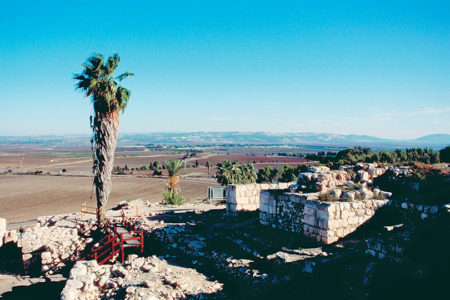Eye on Middle East Jan/Feb 2004
Following the brutal suicide bombing that took twenty-one lives and wounded sixty others at the Maxim restaurant in Haifa on October 4, 2003, Israel went on the offensive.
The terrorist group Islamic Jihad quickly claimed responsibility for the murder that ended the lives of two entire Israeli families plus infants, children, and Arabs.
Israel reacted by dispatching planes to bomb a terrorist training camp for Hamas and Islamic Jihad members in Syria. For years the Syrians have refused to honor their promises to close offices and facilities of terrorist organizations that have pledged to destroy Israel. Longsuffering Israeli officials decided that enough was enough and opted to strike the camp outside Damascus where terrorists had enjoyed the hospitality of their Syrian hosts with immunity from attack.
With an egregious degree of hypocrisy that has become all too familiar to this generation, Syria demanded, and was granted, an emergency session of the UN Security Council. There Syrian diplomats aired their grievances before international delegates who were, in the main, as unscrupulous as the Syrians. Few seemed to remember that this regime has slain thousands of it own citizens; heartlessly occupied Lebanon in what amounts to annexation; sheltered, armed, and trained the Hezbollah terrorist organization; and reportedly granted terrorists free passage into Iraq on a mission to kill Americans. Syria serves as the Middle East’s major host to the worst of the terrorist lot.
The UN, of course, castigated Israel for going to the source in its attempt to protect its innocent citizens. Incidentally, no resolutions condemning the terrorists were presented on behalf of those victims whose “crime” was sharing a festive meal with family and friends at Maxim’s on the eve of Yom Kippur.
The great lesson here is that survival demands preemptive action when there is no other reasonable recourse. The Israelis were returning to an essential element in their quest for survival on a planet that looks more like a jungle than a harmonious, gleaming city on a hill.
Israel learned this lesson the hard way in 1973. When it was apparent that the nation was about to be attacked by Syria and Egypt, the High Command minimized warnings from intelligence sources. And then-Prime Minister Golda Meir made a fateful choice. Stung by the international criticism following Israel’s preemptive strike in the June 1967 Six-Day War, she stated that this time Israel would wait and let the world see who the aggressors were. That decision, humanly speaking, nearly cost the nation its life.
It has been said more times than we care to remember that those who refuse to learn from history are destined to repeat it. We are in the throes of the potentially deadly process of repeating what we have refused to learn.
In the name of international civility, tyrannical butchers are given safe haven while they prepare to wreak death and destruction on unsuspecting masses. To make matters worse, they occupy seats at the United Nations and are treated with unwarranted dignity and respect—that is, until it will become too late to prevent the inevitable.
Recently one of the television networks ran a program on the life of the late Russian dictator Joseph Stalin. Stalin engineered the deaths of twenty million people. But it was said that, though that fact was true beyond rebuttal, in the course of that genocidal spree Stalin had “brought stability to Russia.” For twenty million unfortunate victims, that “stability” was permanent.
In striking where the enemy trains people to kill, Israel did the right thing. But will anyone learn from it? The answer is up for grabs.






